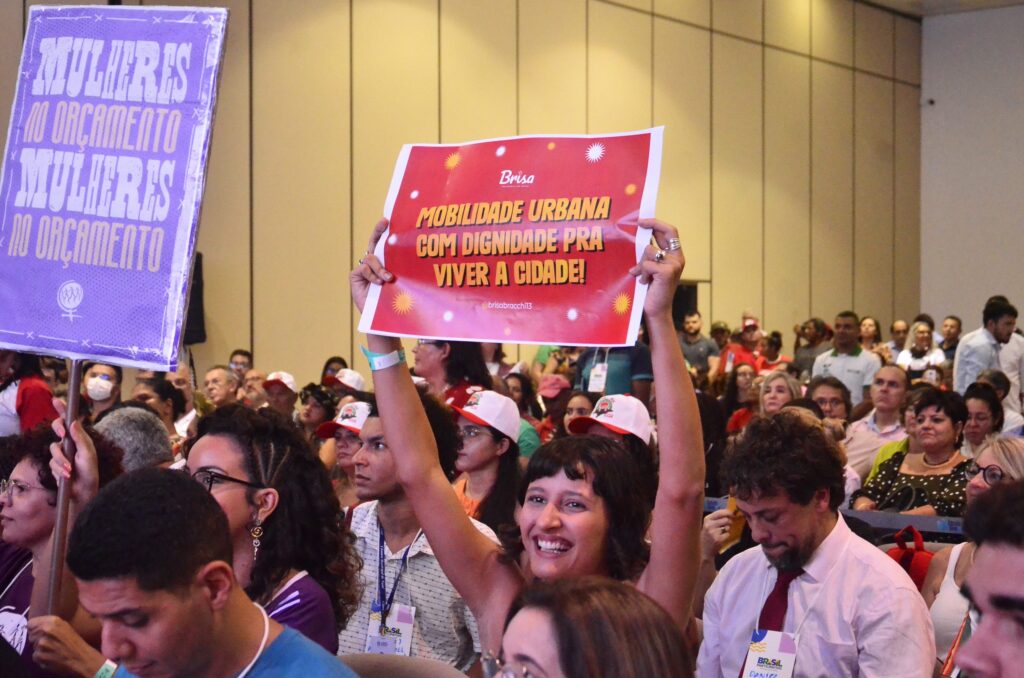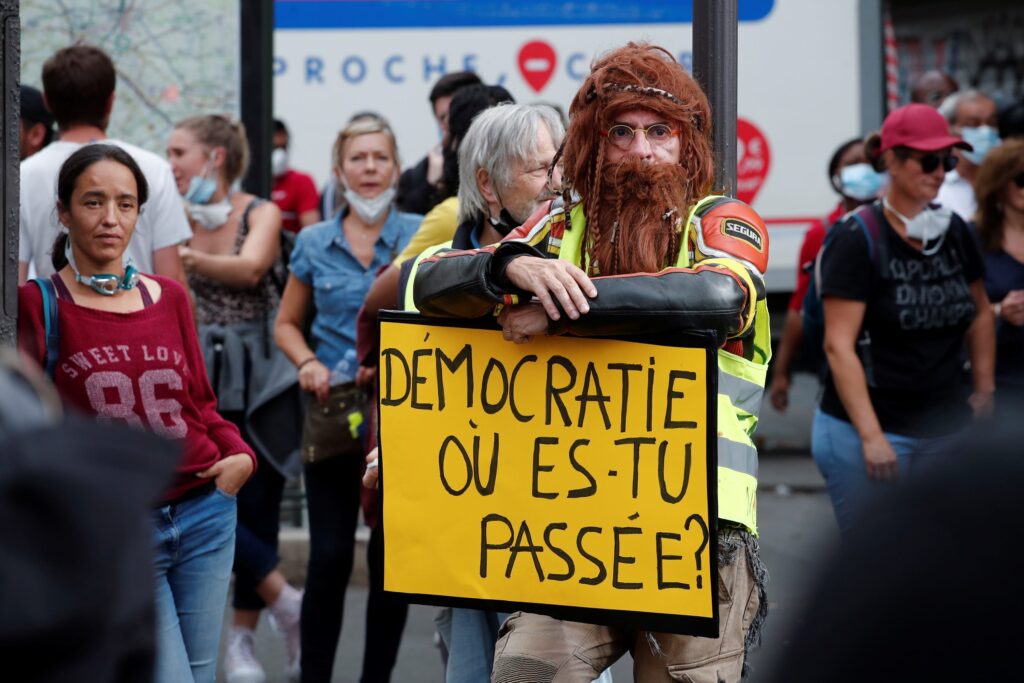Post-Technocratic Pathways for Responding to Emergencies

Four years ago, in April 2020, the world witnessed an unprecedented level of governmental synchronization across every nation, irrespective of political regimes, prevailing governments, cultural nuances, or socioeconomic statuses. Each country, in its own unique way, responded simultaneously to a single challenge: a respiratory virus. Despite the vast heterogeneity in the responses to the COVID-19 pandemic,1 every government was compelled to adapt its governance in the face of this crisis. The ad-hoc manner in which governments had to adjust to a global event revealed the limitations of public action, particularly within liberal democracies. In many nations, the critical dilemma was balancing the restriction of free movement against the right to health. In others, the preservation of these freedoms was prioritized at the expense of health. This has been the first globally synchronized, interdependent experience where governments of varied regimes and ideologies had to manage a common emergency. Emergencies demand swift action and immediate response capabilities. Democratic principles and individual freedoms call for extensive public debate before any political action. But emergencies do not abide by the timing of debate. How, then, in an era of existential crises, can decisions be made democratically? What can the COVID-19 pandemic teach us about the current limits of democratic regimes?
Responding to COVID-19 : patterns and limits
Political science research on government responses to COVID-19 has often focused on the efficiency of these measures2 or on the motivations of leaderships,3 such as seeking credit and avoiding blame.4 Little has been explored about new forms of governance that emerged in response to the unique crisis. There are, however, two notable exceptions, which led to the development of new concepts: “executive overreach/underreach,”5 and “punt politics.”6
Observing the political behavior of government leaders during the initial waves of COVID-19, some scholars proposed new terms to describe these actions. These behaviors, they argue, are typical of crisis periods, diverging from the usual political dynamics. One of the concepts introduced is “executive underreach,” defined by David E. Pozen and Kim L. Scheppele as an intentional failure by the national executive power to address a crisis for which it is legally and functionally equipped, though not necessarily legally obliged. This concept contrasts with “executive overreach,” where leaders authoritatively assume extraordinary powers under the pretext of responding to a crisis, compromising civil rights and democratic norms.7 According to Pozen and Scheppele, “executive underreach” can also stem from a desire to shift blame and avoid responsibilities. This term was used to describe the responses of Presidents Jair Bolsonaro and Donald Trump to COVID-19, in Brazil and the U.S., respectively. While it is challenging to precisely quantify the public health damages attributable to their behaviors, it is clear that both countries suffered due to their administrations’ lack of action. Similarly, the concept of “punt politics” was developed by Felicia Marie Knaul et al. to refer to cases where national governments postpone or deflect, either de jure or de facto, responsibility to subnational entities in crucial decisions requiring centralized leadership. This implies a form of political evasion in which national leaders delegate their duties and responsibilities to states and municipalities in ways that are ineffective and harmful. This phenomenon essentially describes the same as “executive underreach” and “blame avoidance.”8
In summary, in the case of “executive overreach,” fundamental rights are suspended to ensure the fundamental right to public health. Conversely, with “executive underreach,” fundamental rights are not suspended, but the duty to protect public health is violated. In neither case do competitive liberal regimes seem capable of preserving democratic principles and values in the context of an acute crisis. Although COVID-19 is a more recent issue and its scale is unprecedented, this situation is typical of what we call a state of emergency and how competitive liberal regimes respond to them.
Liberal democracies: State of exception as the only answer to emergencies
Liberal democracies were established from a legal framework, the notion of the rule of law. They are regimes shaped by the norm. Yet, we live in times of exception, as many authors continually warn, and the tendency is that we will increasingly face emergency events. Climate change brings to light new dramatic situations where the imperative of a swift response becomes essential. Faced with an emergency, the only possible response from liberal democratic regimes is to suspend the norm and establish a state of exception.
Regularity is constitutive of the norm. Regularity, even the repetition of social practices, is noted, regulated upon, and thus the norm is established. When a critical event erupts, it breaks this repetitive logic, thus escaping the norm’s prescription. The response that befits the norm is to suspend itself, to allow for the direct exercise of force in reaction to the event. Therefore, the norm contains, as its only prescription for the event, the suspension of itself.9 This suspension follows rules: the state of exception is inscribed in time and circumscribed to the event.
Every rule of law contains within it a latent state of exception
The issue of the exception dives directly into political philosophy and is directly related to decision-making. Three important political thinkers of the 20th Century put state of exception at the heart of sovereignty: Carl Schmitt, Walter Benjamin and Giorgio Agamben.10 Emergency measures allow the state to intervene directly in the biological life of individuals, treating populations as objects to be managed, regulated, and controlled11
At the outset of the pandemic, Agamben suggested in an extremely controversial article published in February 202012 that the surge of the pandemic could mark an opportunity for biopolitical governance, permanent state of exceptions and the violation of the rights of citizens. He was anticipating the “executive overreach,” yet he did not foresee executive underreach. Governments could simply respect individual rights and simply let the most vulnerable die, which aligns with what Achille Mbembe has termed “necropolitics.13

Trust in government shrinks, emergencies multiply
Agamben is not alone in his distrust of governments. Indeed, the literature review on government popularity during the COVID-19 pandemic is still somewhat limited. However, it is possible to observe that although there was an initial surge in public support for governments during the early stages of the pandemic—a phenomenon often referred to as “rallying around the flag”—this support waned by the second wave.
In forthcoming pandemics and akin emergencies, democratic governments are unlikely to adopt such restrictive measures. This trend is evident from the actions of leaders who initially exercised executive overreach in the pandemic’s early stages, only to ease their approach in later waves. Some leaders, such as Pedro Sánchez in Spain and Emmanuel Macron in France, who implemented strict measures during the first wave, softened their responses due to declining popularity and increasing political opposition.14 What will the response look like in the next pandemic? One certainty is our increased vulnerability to forthcoming health crises.
Climate change drives the rise of sanitary emergencies through various interconnected mechanisms that disrupt disease transmission patterns and foster conditions for infectious diseases to spread. It alters the distribution and abundance of vectors like mosquitoes and ticks, potentially introducing diseases such as malaria and Lyme disease to new regions with unprepared populations. Changes in temperature and humidity affect pathogen life cycles, enhancing their development within vectors and increasing infection rates. Extreme weather events, food and water insecurity, and forced migration disrupt communities and health systems, heightening the risk of disease spread through contaminated supplies, overcrowded conditions, and weakened human health. Additionally, climate change disrupts ecosystems and increases human-wildlife contact, leading to the emergence of new diseases and changing the seasonality of disease outbreaks, thereby extending transmission seasons and altering outbreak patterns.
We are living in an era where emergencies are becoming more frequent, morphing into the norm rather than the exception. Responses to such crises cannot oscillate between neglecting the people (executive underreach) and perpetually declaring states of exception—not only due to moral concerns, but also in order to pursue policy effectiveness. Managing health emergencies necessitates significant behavioral changes across populations. This holds true even in authoritarian regimes, where compliance with specific behavioral protocols is essential. Trust in governance becomes paramount. As the likelihood of health emergencies increases, identifying a genuinely democratic approach to pandemic response is imperative.
Balancing participatory democracy with emergency responses
In most liberal democracies, the legitimacy of representative institutions is diminishing and the possibilities for expanding participation are limited. Criticisms of participatory policies often revolve around two main concerns: the financial costs associated with implementing these participatory devices15 and the divisive nature of referendums, which can lead to what is termed the “politics of the showdown.”16
However, institutional innovations that engage citizens in the decision-making process tend to bolster trust in government. While it’s true that many initiatives labeled as participatory often amount to mere tokenism, lacking thick involvement, there are mechanisms that have truly decentralized decision-making and distributed power more equitably. These mechanisms are invariably tied to increased trust.17
Truly democratic tools that delegate decision-making power to citizens require time. They require deliberation, public debate, access to information, and the mobilization of interested segments of society. Participatory budgeting was pioneered in Brazil’s Porto Alegre in 1988 and has since been replicated in hundreds of cities across all continents. It allows the population to vote directly on portions of the municipal budget. However, due to limitations in time and space during the 1980s and 1990s, delegates in the budgeting process were representatives of the population. With technological advancements and the widespread availability of the internet, it became possible to expand to direct citizen voting on budget allocations. Between 2006-2008, the city of Belo Horizonte in Brazil, had 8 to 10% of the population of the city voting directly in budget allocation decisions.
A participatory budget demands discussion, or at the very least a referendary vote. This allows stakeholders directly impacted by decisions to organize, mobilize others, and exert influence. Elections and deliberations are inherently time-consuming processes. Therefore, direct democracy mechanisms are not the quickest means to an end. While they are the most democratic and tend to have higher compliance from the population, they operate within the timeline of the norm rather than the exception. Given that direct democracy mechanisms might not be suitable due to their lengthy nature, the alternative would be to explore a decision-making process that is less participatory but arguably more representative than traditional parliamentary democracy. Sortition, or the selection of officials by lot, presents a more representative option.
Sortition ensures descriptive representation,18 and that every citizen has an equal opportunity to be chosen at random. This approach echoes the principle of universal suffrage and majority rule, as articulated by Cornelius Castoriadis. It operates on the premise that all citizens possess equal political acumen, rendering every individual’s voice as valid as the next.19 This is encapsulated in Jacques Rancière’s observation that popular power lies in “the equality of capabilities to occupy the positions of governors and of the governed.”20
While we have yet to see experiences where sortition mechanisms fully replace Parliament, the development of deliberative mini-publics21 to underpin parliamentary debates and, more importantly, public debates, is emerging as a significant democratic innovation. Ireland stands out in this regard, having conducted four successive citizens’ assemblies chosen through random selection. This approach has led to significant political outcomes, resulting in three successful referendums stemming from these assemblies—a feat unparalleled by other nations. Notably, the 2018 referendum that legalized abortion in Ireland was preceded by a citizens’ assembly that spent six months discussing the issue. The widespread dissemination of this discussion influenced the national public debate, and the referendum result coincidentally or not mirrored the decision made by the Citizens’ Assembly.22 The referendum outcome exactly matched that of the Citizens‘ Assembly, with both instances seeing 65% in favor of legalization. This leads to two possibilities: either the Citizens‘ Assembly facilitated an increase in public debate that shifted a significant portion of the population’s stance, or the Citizens’ Assembly was so symmetrically representative of Irish society that it demonstrated to the public and the political class that this was the more legitimate option. Effective dissemination of these discussions can guide and enrich public debate, fostering a public sphere in the Habermasian23 sense around specific issues, thus enabling the formation of an engaged and informed public sphere.
Citizens’ assemblies also require time. What is often perceived as their major weakness—the lack of decision-making power—might, in this context, become their greatest strength. Without the immediate pressure of making a decision, they can serve to anticipate future decision points, thereby creating a perennial arena that keeps the conversation about future decisions alive. In this vein, establishing citizens’ assemblies on matters of sanitary emergencies could be crucial for enhancing trust in governments ahead of future pandemics. Questions such as what the government’s action plan should be in the event of another epidemic, and which rights must be preserved at all costs, could be deliberated. Implementing a citizens’ assembly could, on one hand, increase trust in any governmental response to pandemics and, on the other hand, improve the enforcement of such plans. This is because the population would feel partially responsible for the governmental response, potentially increasing the level of compliance. More importantly, this approach diminishes the possibility for governmental arbitrariness and the exploitation of emergency situations for governments to expand their discretion. Of course, the resolutions of a citizens’ assembly wouldn’t be binding, but they could offer a platform for anticipating disagreements and divergences, allowing for their processing well before an emergency situation arises.
Although the concept of employing sortition devices to deliberate on foreseeable future issues is highly constrained and raises numerous questions, it underscores the notion of time, which is pivotal for democracies in critical eras. The concept of time in politics is a long-standing debate, with the contrast between Chronos and kairos permeating rhetoric,24 theology,25 and political philosophy. Yet beyond this duality, without undermining its significance, it is essential to borrow a critical concept from public health: preparedness. It involves a proactive and thoughtful approach to potential challenges, emphasizing the importance of foresight, wisdom, and ethical deliberation in preparing for uncertain futures. It requires an awareness of one’s vulnerabilities and capacities, as well as a commitment to developing the virtues necessary for resilience and adaptability. This concept is frequently misapplied within technocratic frameworks, yet it more accurately aligns with Phronesis, as opposed to Episteme or Techne.26 Preparedness may well represent the sole domain where democracy can exist in states of exception. The fundamental takeaway from this article is that we must either start to conceive of preparedness as an integral temporal aspect of democratic politics, or watch democracies perish, suffocated by regimes of exception, technocracies, or, perhaps even more alarmingly, by governments that blatantly disregard the lives of their citizens.
- The COVID-19 pandemic has triggered unparalleled actions by governments globally. The Oxford COVID-19 Government Response Tracker (OxCGRT) is introduced as a dataset catering to the demand for continuously updated, accessible, and comparative data on policy measures. Starting from January 1, 2020, it documents governmental policies across over 180 countries, including subnational jurisdictions of several nations, in areas of closure and containment, health, and economic policy. Policies are documented on ordinal or continuous scales across 19 policy areas, reflecting the variations in the intensity of responses. ↩︎
- Articles were published in the peer-reviewed journals Evaluating the impact of non-pharmaceutical interventions (NPIs) in curbing the spread of SARS-CoV-2. There was one by Haug et al. published in Nature in 2020 quantifying the effects of 6,068 hierarchically organized NPIs across 79 territories on the effective reproduction number, Rt, of COVID-19. ↩︎
- Political scientists focused on studying leadership as a key independent variable to explain the differences among national government responses (Azenjman, 2020, Hall,2021). ↩︎
- De Greer brought together various political scientists to study and compare the behaviors of political actors in response to COVID. They build on the political science axiom that politicians seek credit and avoid blame (Weaver, 1986)—that is, “if something seems popular, they try to take credit for it; and if there is something unpopular, they will try to avoid blame and, if possible, cast the blame onto opponents” (Greer et al, 2022, 409). This analysis is used to explain the movements of centralization (and decentralization) observed during the initial waves of the pandemic across countries. A remarkably similar pattern was identified across European countries, with centralization at the beginning, reflecting credit claiming strategies; followed by subsequent decentralization, as a strategy to avoid blame. ↩︎
- David E. Pozen & Kim L. Scheppele, Executive Underreach, in Pandemics and Otherwise, 114(4) Am. J. Int’l L. 608 (2020). ↩︎
- Punt Politics refers to national leaders in federal systems deferring or deflecting responsibility for health systems decision-making to sub-national entities without evidence or coordination. The fragmentation of authority and overlapping functions in federal, decentralized political systems make them more susceptible to coordination problems than centralized, unitary systems (Knaul et al. 2021). ↩︎
- In countries that consider themselves liberal democracies, the responses varied widely but were generally classified as “executive overreach” or “executive underreach.” In some cases—such as France, Spain, Argentina, and India—executive powers quickly imposed restrictions on basic individual rights to contain the virus’s spread. In contrast, in countries like Brazil and Mexico, there was an “executive underreach,” where executive powers neglected the issue and did not take charge of leading an effective response to the pandemic. Although rights were theoretically less infringed upon, the population was more vulnerable to the spread of a deadly virus. Some countries initially took a stance of inaction but quickly shifted to more restrictive actions—the United Kingdom, and Italy. ↩︎
- A difference between these concepts and the study that originated “punt politics” is that Knaul et al. emphasize the inadequacy of this lack of action by the federal government, given that subnational entities are not adequately equipped to respond to national threats. ↩︎
- In Homo Sacer II: State of Exception, Giorgio Agamben (1998) ↩︎
- Carl Schmitt’s political theory is deeply rooted in the concept of the exception. He argues that the true test of sovereignty is the ability to decide on the state of exception. Schmitt’s famous definition of sovereignty is that “the sovereign is he who decides on the state of exception”. This implies that the sovereign has the power to transcend the rule of law in times of emergency, effectively suspending the legal order to restore normalcy. Schmitt contends that legal systems cannot anticipate the nature of future emergencies and that the sovereign’s decision cannot be guided by existing laws. This view suggests that the exception is foundational to the political order, as it is the moment when the sovereign can assert ultimate authority. Walter Benjamin, on the other hand, critically examines the state of exception. He questions whether the exception has become the rule, particularly in the context of historical calamities and the rise of authoritarian regimes. Benjamin’s eighth historical thesis suggests that the state of exception, which was supposed to be a temporary measure, has become a normalized state of affairs. Inspired by these two authors, Giorgio Agamben, updated this discussion to the biopolitical context, that dialogues with our current planetary health paradigm. ↩︎
- The figure of homo sacer, which Agamben uses to illustrate this paradox, is an individual who is included in the political community by being excluded from it. Homo sacer’s life is reduced to zoe (bare life) that can be killed without committing homicide because it exists outside the protection of law (bios). This figure embodies the paradox of modern sovereignty, where the power to protect life coincides with the power to expose it to death. ↩︎
- L’invenzione di un’Epidemia, February 2020, Agamben. ↩︎
- Necropolitics, Achille Mbembe, 2003 ↩︎
- (Arantes, 2022) ↩︎
- One of the primary criticisms of participatory devices is the significant financial cost associated with their implementation. This includes expenses related to organizing events, facilitating public participation, and ensuring that the participatory processes are inclusive and effective. However, it is essential to consider the potential long-term benefits of participatory policies, which may offset the initial costs. Participatory approaches can lead to more informed and equitable policies, increased public trust in government, enhanced social cohesion and tax compliance (Touchton, Wampler, Peixoto, 2019). ↩︎
- Referendums often present complex issues as binary choices, forcing citizens to take sides and potentially deepening societal divides. The key to mitigating the divisive nature of referendums lies in the design of the participatory process. This includes ensuring that the public is well-informed about the issues at hand, facilitating inclusive and deliberative discussions, and providing mechanisms for compromise and consensus-building. ↩︎
- Empirical studies show that governments implementing participatory budgeting in low- and middle-income countries have observed improved tax compliance, suggesting a direct correlation between participatory practices and governmental legitimacy (Touchton, Wampler, Peixoto, 2019). ↩︎
- Descriptive representation ensures statistical equity among individuals, offering a more accurately representative sample of society’s heterogeneity than electoral processes do (Landemore, 2011). ↩︎
- Castoriadis’s perspective aligns with the provocative notion that the legitimacy to govern emerges precisely from the lack of any specific qualification ↩︎
- Rancière, Hatred of Democracy, p. 49. ↩︎
- Mini-publics consist of panels selected through stratified random sampling, where ordinary citizens convene to discuss issues related to public policy (Grönlund et al., 2014). There are different forms that have been applied globally, including citizens’ juries, deliberative polls, and, more notably in recent times, citizens’ assemblies (CAs), which have seen a rise in adoption around the world with diverse levels of engagement (Courant and Sintomer, 2019). ↩︎
- As a nation profoundly influenced by Catholicism, Ireland transformed the prohibition of abortion from a legal statute into a constitutional mandate through the 8th Amendment, also known as Article 40.3.3, in a 1983 referendum. Consequently, the country became unique in enshrining the right to life of the ‘unborn child’ within its Constitution. In 2016, despite being led by the Labor/Fine Gael coalition, the government exhibited reluctance to propose the constitutional amendment on abortion through Parliament, mindful of the politically volatile nature of the issue. Given the profound division among voters regarding abortion, many politicians opted to remain publicly neutral on the matter, fearing that taking a definitive stance could jeopardize their electoral support or even their seats, so they decided to do a CA followed by a Referendum (Courant, 2021). ↩︎
- Habermas describes the public sphere as a conceptual or metaphorical community, not confined to any specific physical location, but rather a realm of our social life in which something approaching public opinion can be formed. This sphere is envisioned as an arena where individuals can participate in rational and critical discussions, independent of economic or political influence, on topics of widespread concern. It functions as an intermediary between the state and the broader society, offering a space for public opinion to coalesce, which can subsequently impact state policies and decisions (Habermas, 1962). However, the notion of a rational public sphere is highly debatable and has been rigorously critiqued by proponents of radical democracy, particularly by thinkers such as Chantal Mouffe, Ernesto Laclau, and Simon Critchley. They argue that democracy should be seen as a realm of perpetual conflict rather than a quest for consensus. Despite this contention, even if we accept that democracy is inherently conflictual rather than consensual, conflicts lead to negotiations and agreements that reflect the balance of power among agonistic participants. Thus, a citizens’ assembly could effectively serve as a reflection of this ongoing conflict, embodying the dynamic and contentious nature of democratic discourse. ↩︎
- The duality of Kairos and Chronos, representing the qualitative and quantitative aspects of time respectively, has been a subject of philosophical inquiry since ancient Greece. Chronos as a measure of sequential time in Aristotle’s natural philosophy, Kairos as qualitative moments that define existence in Nietsche, or the opportune moment in Heidegger. ↩︎
- In the New Testament, where kairos is used to denote the ‘right time’ for God’s intervention in human history, such as in the incarnation and resurrection of Jesus Christ (Luke 19: 41-44, passage that is important for the Black Theology). ↩︎
- Preparedness relates to phronesis. The concept of phronesis, as articulated by Aristotle, is a central idea in his ethical philosophy, particularly as outlined in his work, the “Nicomachean Ethics.” Phronesis, often translated as “practical wisdom” or “prudence,” is an intellectual virtue that plays a crucial role in ethical decision-making and moral action. It is distinguished from other forms of knowledge in Aristotle’s framework, such as episteme (scientific knowledge) and techne (craft or technical skill), by its focus on action and its ethical dimension. ↩︎


